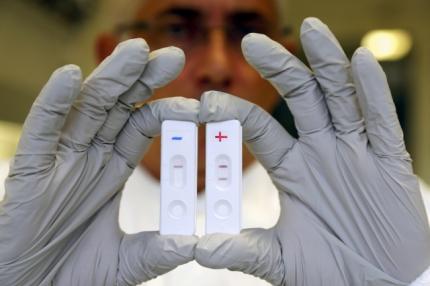Only about a third of the $2.89 billion (2.52 billion euros) in aid money pledged to fight the Ebola virus in west Africa was actually delivered, according to an analysis published by the British Medical Journal.
The report pointed to delays in the international response since the first reports about the deadly outbreak in March 2014 and said that "this may have contributed to the ongoing spread of the disease".
"Like the international response, contributions to fight the epidemic were slow to take off," said the report by Karen Grepin, assistant professor of global health policy at New York University.
The report, published on Tuesday, identified the United States as the top donor, saying it had disbursed $855 million (746 million euros) by December 31.
It was followed by Britain, the World Bank, Germany, France and Microsoft co-founder Paul Allen, a US philanthropist who sent $55 million.
A total of $1.09 billion had been delivered by the end of 2014 -- around 38 percent of the total pledged.
The World Health Organization was first alerted to the current outbreak of the Ebola virus in March last year but only declared a public health emergency of international concern in August, the report said.
The first $500 million of aid only arrived in mid-October and the total reached $1.0 billion only in December, with Liberia being the single biggest recipient of aid ($882 million).
The report also said the World Bank had pledged $230 million but disbursed only $117 million, although it added that that the data did not cover loans to the affected countries.
"We need a mechanism to enable more rapid disbursement of funds to fight public health threats such as Ebola," the report said, adding that "existing contracting mechanisms are too slow".





















































